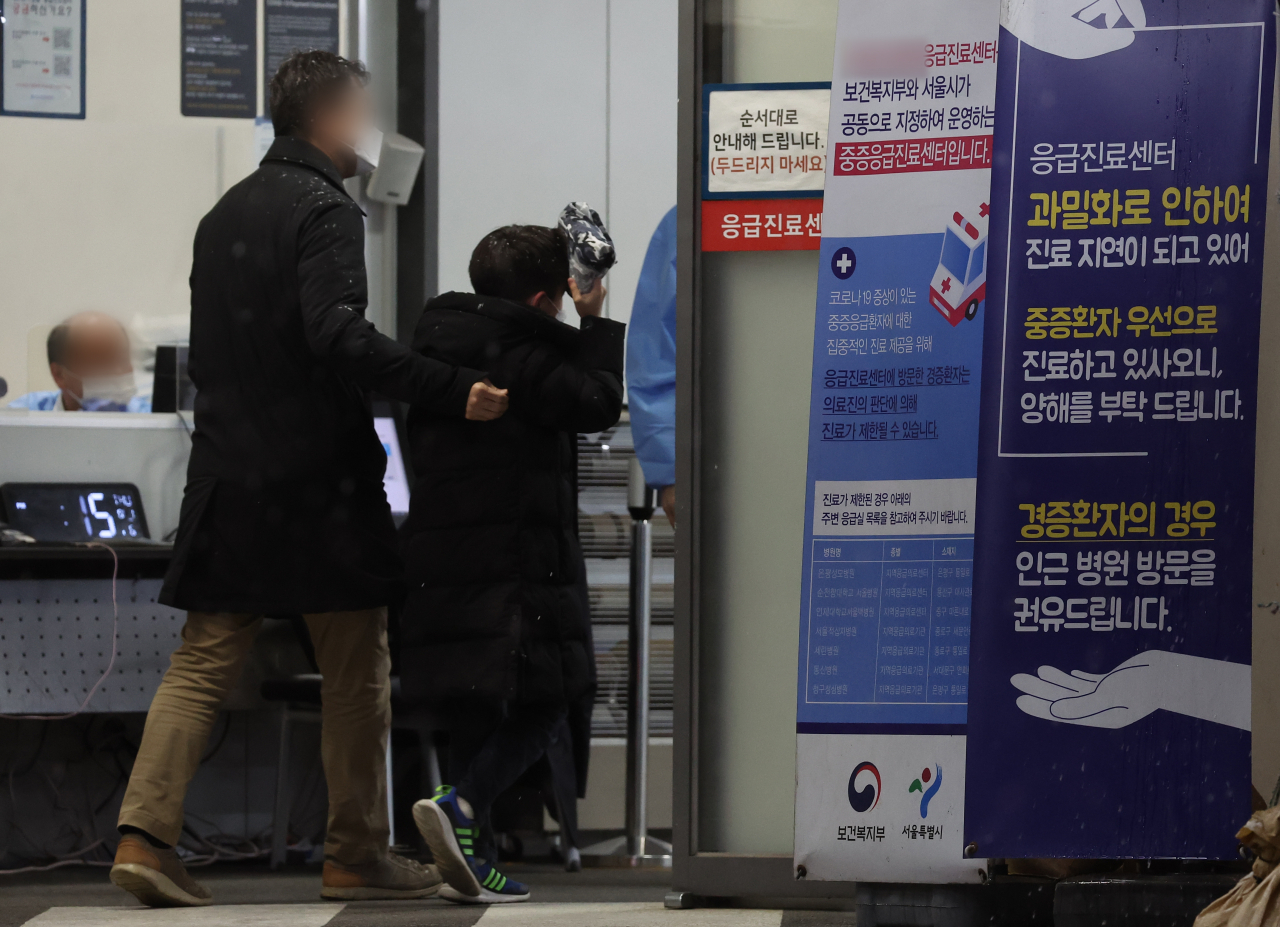Health care crisis hits highest level amid doctor walkout
Government to fully allow telemedicine services for all hospitals until work stoppage ends
By Park Jun-heePublished : Feb. 23, 2024 - 14:00

The South Korean government said it has elevated the health care crisis level to the highest position, as of Friday at 8 a.m., in response to the collective walkout of junior doctors as they show little signs of returning.
The highest level of seriousness in the four-tier warning system had previously been issued during the COVID-19 pandemic over a spike in confirmed cases, but this is the first time the government has lifted the gauge to seriousness regarding health care.
In an effort to minimize the impact of striking interns and residents, Prime Minister Han Duck-soo said in Friday’s emergency government meeting on the doctors’ collective action that the government would extend the operating hours of all public medical institutions on weekdays to prevent disruptions in health care, as well as expand their weekend operations.
Han added that the government would elevate the operational level of public health care institutions to the maximum level, vowing a pangovernmental response and support for patient safety.
“(The government) will newly establish additional regional emergency situation rooms responsible for transporting severely ill emergency patients in four major regions early next month,” said Han.
The government has also established a Central Disaster and Safety Countermeasure Headquarters for doctors’ collective actions headed by the Prime Minister, he added.
As of Thursday at 10 p.m., a total of 8,897 trainee doctors from 94 training hospitals had tendered their resignation letters, and 7,863 of them had left their workplaces. Hospitals have not formally accepted the resignations, according to the Health Ministry.
Amid delayed surgeries and medical appointments, the Health Ministry said Friday that it would fully allow telemedicine services for all hospitals until the doctors’ work stoppage ends, effective from the same day.
“The government plans to prevent medical staff from coping with burnout through junior doctors’ walkouts at tertiary and general hospitals by focusing its capabilities on treating seriously ill and emergency patients, and treating patients with moderate symptoms at secondary hospitals and outpatients with mild symptoms at the clinical level,” said Second Vice Health Minister Park Min-soo in Friday’s press briefing.
Park added that non-face-to-face treatment would reduce inconveniences for patients and allow medical institutions to respond to increased outpatient demand at local hospitals and clinics.
Also, the Seoul Metropolitan Government, along with provincial governments, has set up a disaster safety management team to mitigate medical gaps.
Meanwhile, the emergency response committee formed by professors at Seoul National University’s College of Medicine and Seoul National University Hospital warned that it would also take collective action if the government fails to come up with measures that junior doctors could accept.
“If (the government) doesn’t take a step forward during the weekend, a crisis that no one can solve will come,” it said in a statement released Friday, noting that this week is the “golden hour that could salvage the situation.”



















![[Today’s K-pop] Treasure to publish magazine for debut anniversary](http://res.heraldm.com/phpwas/restmb_idxmake.php?idx=642&simg=/content/image/2024/07/26/20240726050551_0.jpg&u=)